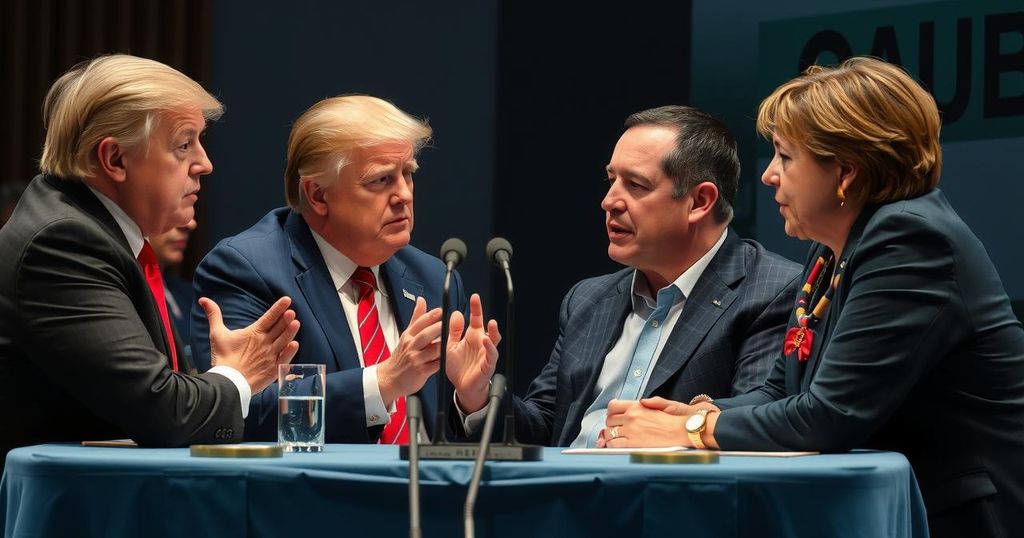Germany’s Political Crisis: A Call for Unity Ahead of Early Elections

Germany is grappling with political discord and an economic crisis, highlighted by a significant loss of decorum in parliamentary debates. Chancellor Olaf Scholz’s coalition government faces a vote of confidence leading to early elections, reflecting wider issues affecting public policy. The emergence of extremist parties complicates the political landscape, while the economic impact of rising energy prices and competition threatens the country’s industrial stability.
Germany is currently experiencing significant political turmoil and economic distress, culminating in an adversarial debate inside the Bundestag. Chancellor Olaf Scholz has lost a vote of confidence, a rare event signaling potential early elections on February 23. The harsh exchanges between Scholz and opposition leaders reflect deteriorating decorum in German politics, underscoring deep-seated issues facing the nation. Germany’s economy is severely challenged, primarily due to high energy prices and management failures, threatening the stability of its automotive industry as competition from China intensifies.
Moreover, the geopolitical landscape is shifting, with extreme political factions gaining traction in the face of a protracted conflict in Ukraine. Both the far-right AfD and the far-left BSW are influencing public sentiment against continued support for Ukraine, which contradicts the government’s stance. These factions could capitalize on a vacuum of leadership if elections lead to further instability in Berlin and Paris. The impending economic consequences, combined with the fragility of relationships within the European Union, pose a significant challenge for the region’s leaders.
Although there are indicators of a changing security posture in Eastern Europe, with nations like Poland and the Baltic states taking the lead, Germany’s internal strife hampers its influence. The conservative political party, the Christian Democrats, must navigate fiscal constraints to reorient military spending towards addressing these threats while simultaneously focusing on domestic infrastructural needs. In light of this situation, collaboration among disparate political factions in Germany is essential. As elections approach, the political discourse should prioritize constructive dialogues rather than personal attacks, as voters are set to evaluate the future of their democratic and economic system.
This article discusses the current state of German politics and its economic implications amid forthcoming elections. It highlights the tension within the Bundestag, particularly the confrontational dynamic between Chancellor Olaf Scholz and opposition leaders, emphasizing a departure from historical political decorum. The piece further explores the economic crisis stemming from energy costs and management decisions, alongside the political rise of extremist factions opposed to external engagements, especially regarding support for Ukraine. As Europe faces challenges, the necessity for a cohesive political strategy in Germany becomes increasingly pressing.
In conclusion, Germany is poised at a critical juncture, where political infighting threatens democratic principles amidst an economic crisis. The potential for early elections raises concerns about stability and collaboration in formulating effective responses to current challenges. A collective approach among leading parties will be essential for navigating the upcoming electoral landscape and restoring public trust in the political system. As Germany evaluates its future leadership, a measured and cohesive strategy is imperative to ensure resilience in both domestic and European contexts.
Original Source: www.theguardian.com








